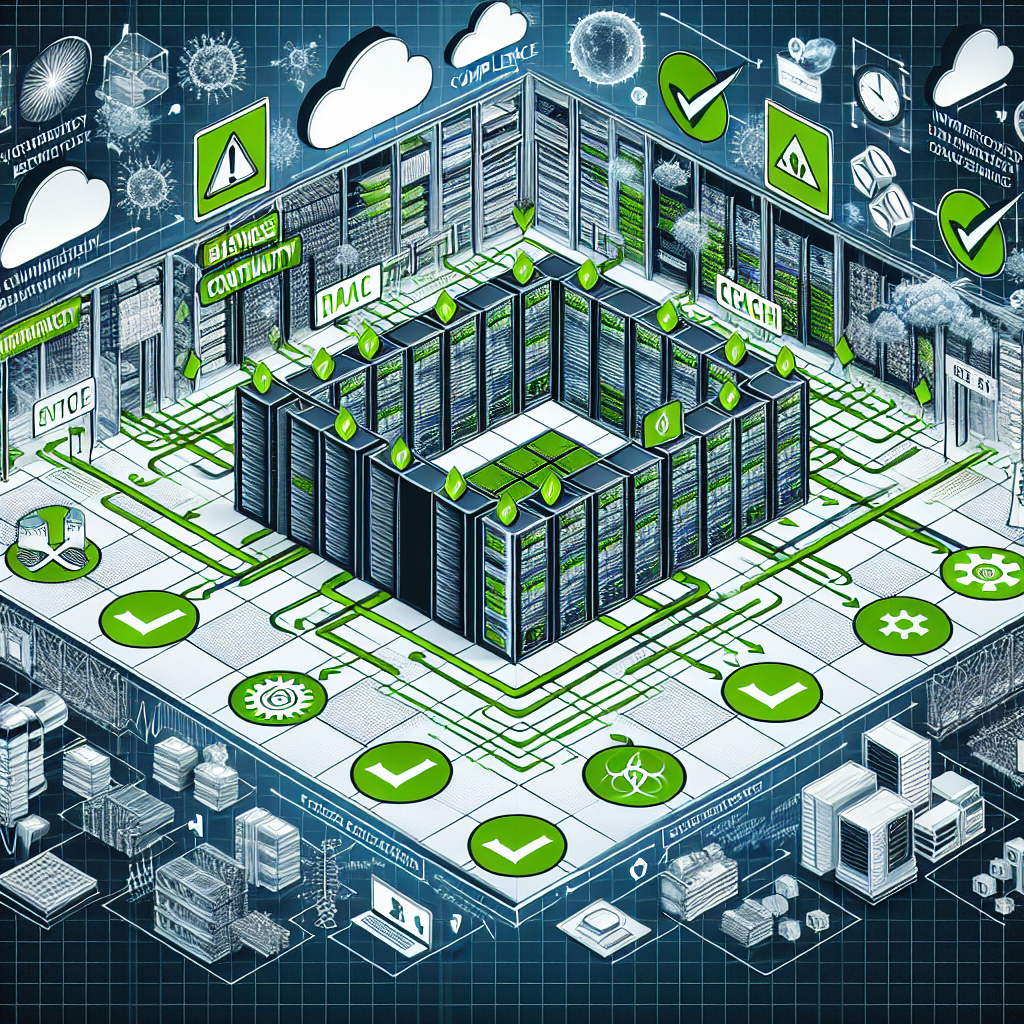How Data Center Compliance Impacts Business Continuity and Disaster Recovery
In today’s digital age, data centers play a crucial role in ensuring the smooth operation of businesses. They serve as the backbone of an organization’s IT infrastructure, storing and managing vast amounts of data critical to its operations. In the event of a disaster or unforeseen event, data center compliance becomes essential in maintaining business continuity and ensuring a quick recovery.
Data center compliance refers to the adherence to regulations and standards set by governing bodies and industry best practices. These regulations are put in place to ensure the security, availability, and integrity of data stored in data centers. Compliance with these regulations not only helps protect sensitive information but also plays a significant role in disaster recovery and business continuity planning.
One of the key aspects of data center compliance that impacts business continuity and disaster recovery is the implementation of robust security measures. Data centers house valuable and sensitive information, making them a prime target for cyberattacks. By complying with security regulations and standards, organizations can protect their data from breaches and ensure that critical systems are not compromised during a disaster.
Additionally, data center compliance also mandates the implementation of backup and recovery solutions. Regular data backups are essential in ensuring that in the event of a disaster, data can be quickly restored and business operations can resume with minimal downtime. Compliance regulations often require organizations to have a disaster recovery plan in place, outlining procedures for data backup, recovery, and system restoration.
Furthermore, data center compliance also includes requirements for physical security measures, such as access controls, surveillance systems, and environmental controls. These measures are crucial in safeguarding data centers from physical threats, such as natural disasters, theft, or vandalism. By complying with these regulations, organizations can minimize the risk of data loss and ensure the continuity of their operations in the face of unforeseen events.
In conclusion, data center compliance plays a crucial role in ensuring business continuity and disaster recovery. By adhering to regulations and standards set by governing bodies and industry best practices, organizations can protect their data, mitigate risks, and ensure the smooth operation of their business in the event of a disaster. It is essential for organizations to prioritize data center compliance and invest in robust security, backup, and recovery solutions to safeguard their data and ensure the resilience of their operations.


